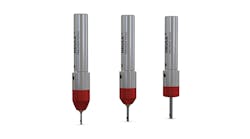Third-party logistics providers are important partners in your business. Having the right partner can improve efficiency, keep costs down, and help you deliver exceptional service to your customers.
But choosing the right partner is key to building a strong long-term business relationship that elevates your brand. Here’s how to pick your third-party logistics partner and build a strong relationship from the start.
Do Your Due Diligence
The logistics industry is booming, leading many to create new logistics companies. Not all logistics partners are created equal, however, so it’s important to do your due diligence.
Whether you’re switching from a previous provider or partnering for the first time, conduct thorough research to make sure you find companies with the capabilities and resources you need to help your business succeed.
Third-party logistics providers should have the ability to integrate into your existing systems or the knowledge to find new solutions that work well for your business. You should also consider your potential partner’s industry experience, brand reputation, customer service record, and financial history, as well as owned vs. rented assets and compliance history.
It’s not enough to just speak to a provider. Look at external sources to understand how the company is received by its customer base. Read customer reviews—positive and negative—and ask the company for references. If they’re confident in what they have to offer, they won’t have a problem giving you this information.
Technology Solutions
Technology is changing the landscape of the logistics industry in many ways, and you don’t want to be left behind the curve. Search for logistics partners with the IT infrastructure to help you succeed. Providers should own and operate the technology they use to provide their services, including warehouse management systems and fleet tracking systems.
You may also want to search for providers with additional technology like fleet tracking using RFID or theft and damage management solutions.
Supply chain management and logistics are seeing more technology implementation throughout the industry. Companies that aren’t considering digital transformation may be left without the agility needed to weather ongoing supply chain challenges, so it’s important to work with a provider with these tools.
Diverse Services
Logistics providers aren’t a one-size-fits-all solution. Some may offer a range of services for different industries and businesses, while others may specialize in niche services like industry or commodity services. Some providers may stick with one aspect of the supply chain, while others may provide end-to-end services.
Consider what any potential provider offers to see what will best benefit your business. Options like quality control, product kitting, reverse logistics, rush orders, and IT asset management could be an asset to your business. Evaluate what works best for your business and what value-added services would be most beneficial in the long term.
Omnichannel Experiences
Omnichannel retail is essential to modern business operations. The focus is on the customer experience, and third-party logistics providers should have an in-depth understanding of omnichannel commerce and how to provide the best possible customer experience to make sure your business is delivering for your customers.
Any logistics provider you consider should have proven industry performance, a comprehensive understanding of your specific industry challenges, and repeatable business models. Consider if you’d benefit from a provider with services related to one aspect of the supply chain or if you need full supply chain services. Evaluate not only your current needs but where your business will be in the future.
Optimized Distribution Networks
The warehousing asset ecosystem is one of the factors to consider in your potential provider. A logistics company should have a strategic approach with optimized distribution networks. For example, you may need storage on domestic and international routes. Still, if you don’t choose a provider with owned warehouses, you could leave your inventory vulnerable to damage or theft.
Learn about the logistics provider's facility size and capability, location, and typical volume. What is the usual volume they handle each day, week, or month? Can the provider handle the high volume and possible delays during busy seasons or with the current challenges? Are warehouses near transit stops like railways and airports?
Customization Options
Customization options can be valuable to certain industries. Consider if a provider can improve your business processes with customization options to provide better service to customers or optimize your inventory.
Brand Alignment
Logistics providers are long-term business partners. You each reflect on each other, so it’s important that you choose a partner who shares your brand values and upholds them. Some things to consider include financial stability, compliance history, and a commitment to addressing market shifts and trends with better processes and systems.
Choosing a logistics partner is not something you want to do every year or two. Take your time vetting possible prospects to find the partner who can support your business needs now and in the future as your business grows and evolves.
Exceptional Service
Customer service applies not only to the service you get from your logistics provider, but the service you give to your customers. Your logistics partner has a big impact on the overall customer experience and the service you provide, so make sure you’re working with a partner committed to excellence, not just for your customers but for you as a customer.
For example, a logistics partner should be aware of trends and offer suggestions for solutions that may improve your processes or systems. Not every solution will work for your business, but a logistics partner that’s always thinking ahead will be looking for solutions instead of falling back on conventional methods.
Find Your 3PL Partner
Third-party logistics companies are flooding the currently booming market, but that doesn’t mean they’re all right for your business. The right partnership can make or break your business, so it’s important to do your research and find the ideal partner for your business, both now and in the future. Consider every aspect of your potential partners, including brand stability and reputation, customer service, safety and compliance, and innovation.











